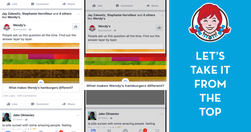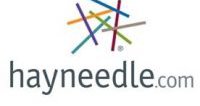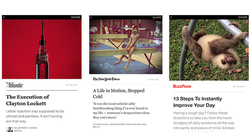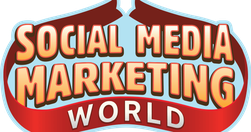
Email, for all the claims of it being dead, is critical for many publishers as a distribution (and marketing) channel they continue to control... Email newsletters have become an important part of publishers’ audience development strategies as a way to deepen their relationship with readers by providing an antidote to the endless stream of news in…

we analyzed over 1 billion posts from 30m brand pages on Facebook.

Newswhip data suggests that Facebook’s live videos, which by their very nature are longer and encourage users to comment, drive higher engagement than traditional short Facebook videos. Facebook even recommends that live streams go for at least 5 minutes, if not longer. Both Fusion and Vox.com are aiming to do future live streams in the 20-minute …

Instant Articles, meet Instant Ads... an immersive way to reach people without making them leave the social network... when users click a Facebook News Feed ad connected to Canvas, it opens a full-screen, rich media page inside of Facebook rather than forcing users to wait for a mobile website to load... removes constraints that low-power mobile s…
top 100 stories of the year, ranked ... by the total length of time people spent reading them... We wanted to see what cross-over this list might have with the biggest New York Times stories on Facebook... We recorded 28 stories in both top 100 lists...36 of the top 100 most shared stories were from the editorial and opinion pages, far more than a…

Axel Springer, wary of being overly dependent on third-party platforms for traffic... fighting back by launching its own news aggregator platform... now has around 1,200 publishers on board ... Digiday spoke with Würtenberger, CEO of Upday, about using humans and algorithms for news sourcing, creating a platform for publishers and banning ad block…

Brands have always had a tougher time spreading messages on Facebook than individuals, because they’re playing in a space that’s fundamentally not designed for them... What if our kids find the idea of any brands communicating as if they’re people even more awkward than we do? there are opportunities to re-think the role publishing plays in soci…

ThinkUp analyzes your Twitter, Instagram, and Facebook activity to give you fun and surprising insights, then emails them to you (or tweets at you if it's super interesting).

Facebook’s Notes feature is giving The Boston Globe another way to post directly to the Facebook platform... Notes, an early Facebook staple, stagnated for years until last September, when Facebook updated the feature with a cleaner, more customizable design and editing tool reminiscent of Medium. Unlike video posted directly to Facebook, there’s…

Sure Facebook has 1.59 billion users, but that not my field of view. I have some 900 “friends” on Facebook. To me, it doesn’t matter who the other one billion five hundred eighty-nine million nine hundred ninety-nine thousand one hundred users are. I can’t reach out to them to begin a relationship... Facebook and Twitter are two very different dif…

At work here is what is called, variously, “social syndication” or “traffic exchange,” a technique increasingly in vogue among publishers looking to get their articles and brands in front of other readers ... help them extend the reach ... fill in the gaps in their own social programming with stories that they didn’t or couldn’t write themselves

Platforms are eating publishers... The idea that Facebook and its ilk could act as information gatekeepers is also a bleak prospect... Facebook wouldn’t allow The New Republic to create an ad for an innocuous piece on medical marijuana ... If Facebook is squeamish about medical marijuana now, imagine the state of the fourth estate once controversy…

Gawker Media CEO Nick Denton was an extreme skeptic of publishers relying too heavily on Facebook. Now he's ... “all in” on publishing directly to Facebook with its Instant Articles program, a backtracking on Denton’s well-publicized lament that publishers are too reliant on platforms...Facebook, with its deep pool of accurate user data, can help …

For journalists, Facebook Live “is a really new way for them to connect,” says Facebook product manager Vadim Lavrusik. “The magic of Live is it's interactive. The people who are viewing the broadcast are just as much a part of it.”

Another 13 U.K. publishers are signed up to start using Facebook’s Instant Articles, including The Daily Telegraph, The Mirror, The Daily Mail and The Economist, Sky News, sports site 90min.com and The Sun.The BBC and the Guardian were the first U.K. partners, and there are plenty more waiting in the wings.

The European Political Strategy Centre gathered a select group of leading international academics to provide input to the ongoing public consultation on a regulatory environment for online platforms.

bringing new technology into the newsroom to change how the outlet commissions and publishes opinion pieces ... expand the coverage beyond just text, into visual story formats that can be accessed and shared across different platforms.... the FT's comment section is a "huge source of strength and a very valuable asset".... a new Facebook commu…
Facebook’s news feed algorithm can be tweaked to make us happy or sad; it can expose us to new and challenging ideas or insulate us in ideological bubbles... The algorithm’s rankings correspond to the user’s preferences “sometimes,” Facebook acknowledges... not the success rate you might expect A glimpse into its inner workings sheds light ... on…

“print dollars have turned into digital dimes, which are turning into mobile pennies.” Basically, even as we consume more news than ever, thanks to mobile’s proliferation, the revenue streams are actually diminishing... Where’s the money going to then, you ask? To Facebook, Google, and Twitter, the winners on mobile...As publishers turn more and …

Facebook already accounts for a huge proportion of the web traffic to major media sites. And publishers are rushing even further into its embrace because they have no choice and can’t think of a better option... ad blocking is taking care of what’s left of the media’s ambitions to continue as standalone entities... there are rays of hope in the …

Publishers like the New York Times should be having an existential crisis over Facebook’s instant articles. Instead they’re embracing them.. digital content is being divided between a lucrative high-end entertainment world,... and a low-end publishing world where content is expected to be “free,” ... a model that... might work to BuzzFeed’s adv…

the power of Facebook’s algorithmic News Feed... doesn’t show users everything their friends post, and so Facebook can demand a toll from publishers for placement in the stream. Today that toll looks like simply programming content to the algorithm, tomorrow it looks like publishing Instant Articles, and maybe next year it looks like paying Facebo…
By 2016, most content will be consumed ... on other people’s platforms... Snapchat Discover, Facebook Instant Articles, and Apple News... Google AMP is coming soon, and it will provide an Instant-like experience for not only Google users but also those using Twitter, Pinterest, and other platforms

for anyone outside Facebook’s Partner Publisher network, the new feature can be somewhat confusing.
the big media institutions knew that they really couldn’t leave their business models, they were locked in... there really is an open question to whether digital journalism will replace the profit margins of traditional journalism... one huge issue in journalism today is how a couple places, particularly Facebook, are becoming a major source of…

taking us towards what an American legal scholar, Frank Pasquale, has christened the “black box society”... subtitle – “the secret algorithms that control money and information” ... it’s not just about money and information but increasingly about most aspects of contemporary life... we know that Facebook algorithms can influence the moods and t…

A quick post to Medium in response to: Facebook Will Be Every Publisher’s CMS And That Is Probably A Good Thing: For a publisher to adopt Facebook as their CMS would be a form of surrender, handing over their future to someone else. - I don’t know if you’re wrong, but I hope you are — Medium
I feel reasonably confident that within the next 6–12 months, you will only see Instant Articles in the mobile newsfeed. Why? Because they are better... they will eventually be available on all Facebook environments. There is seemingly nothing stopping Facebook from rolling out a full front-end to the product so writers can produce directly in …

We'll probably never get a true "dislike" button on Facebook, but the social network just started to roll out the closest thing we've seen yet. Reactions, a new feature for Facebook's ubiquitous Like button that allows you to respond to posts with emoji...: "like," followed by "love," "haha," "yay," "wow," "sad" and "anger." - Facebook React…

While many businesses use Carousel Ads solely to promote products, the ads also provide an excellent opportunity to showcase your brand’s unique narrative. In this article, I’ll share how to use storytelling in carousel ads - How to Tell Stories With Facebook and Instagram Carousel Ads Social Media Examiner